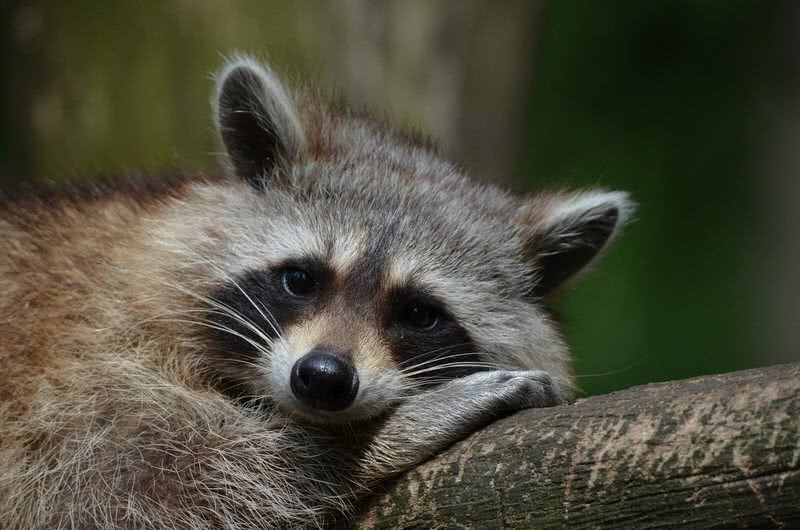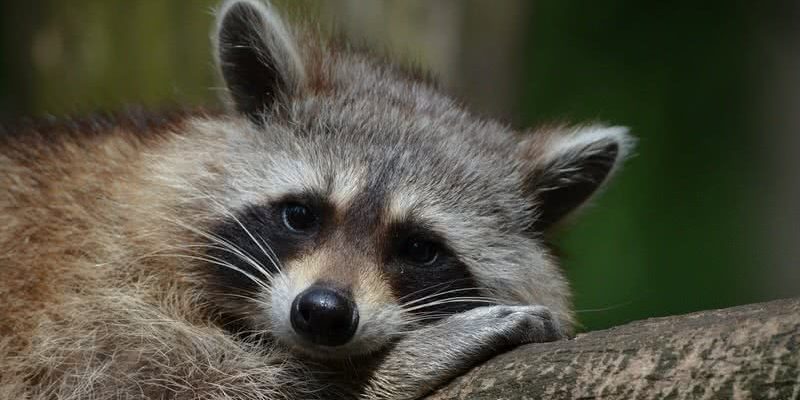
To put it simply, yes, raccoons can pose risks to humans, but it really depends on the situation. Imagine your local raccoon as a quirky neighbor who sometimes gets into trouble—one day they’re stealing your trash, and another, they might be carrying something a bit more concerning. Let’s break down what makes raccoons both fascinating and potentially hazardous, so you can better understand how to coexist with these clever critters.
Understanding Raccoon Behavior
Raccoons are highly adaptable and intelligent animals. They have a knack for problem-solving, which is why you’ll often catch them rummaging through your garbage or sneaking into your attic. They are nocturnal, primarily active at night, which adds an air of mystery to their antics. Their dexterous front paws are almost like hands, allowing them to open containers and unlock gates—think of them as little burglars in the wild!
While their antics can be amusing, it’s essential to remember that raccoons can also be quite defensive. If they feel threatened or cornered, they may lash out. Additionally, their natural curiosity can lead them into dangerous situations, whether that means crossing paths with humans or getting into substances that aren’t safe for them (or us!).
The Risks of Rabies
One of the biggest concerns with raccoons is rabies. This viral infection affects the central nervous system and can be fatal if not treated quickly. Raccoons are known carriers of the rabies virus, so encountering one that behaves unusually—like being overly aggressive or lethargic—can signal a serious problem.
If you spot a raccoon during the day, it could indicate that something’s wrong with it. Healthy raccoons are typically active at night. If approached, a rabid raccoon might act unpredictably, raising the risk of bites. Remember, even a small scratch can introduce the virus into your system. If bitten, it’s critical to seek medical attention immediately. Rabies is no joke, and it’s always better to be safe than sorry.
Raccoon Bites and Scratches
If a raccoon feels threatened, you could be at risk of being bitten or scratched. These injuries can lead to serious infections, even if rabies isn’t a concern. Raccoon bites can quickly become infected due to bacteria present in their mouths.
Here’s what you should know about raccoon bites and scratches:
- Signs of Infection: Look for redness, swelling, or pus around the wound. If you notice any of these symptoms, see a doctor right away.
- Treatment: Clean the wound thoroughly using soap and water. After that, seek medical help to possibly get a tetanus shot or antibiotic treatment.
- Rabies Concerns: If you suspect you’ve been bitten by a rabid raccoon, your healthcare provider may recommend a rabies vaccination series.
In short, while raccoon bites are relatively rare, they can lead to serious health issues. Always maintain a respectful distance from wildlife.
Property Damage and Scavenging
Raccoons are notorious for causing damage to property. They’re skilled scavengers who can easily break into sheds, garages, and even homes. If you leave your trash cans unattended, it’s like rolling out the red carpet for these little thieves. They may tear through bags, scatter debris, and leave an unpleasant mess behind.
To protect your property from raccoons:
- Secure Garbage: Use raccoon-proof trash cans or store your trash in a locked shed.
- Close Off Entrances: Inspect your home for loose vents, openings, or gaps where they might sneak in. Seal up any access points.
- Remove Food Sources: Don’t leave pet food outside overnight, and clean up any fallen fruit from your yard.
It’s no fun to deal with the aftermath of raccoon mischief, so taking preventive measures can save you a lot of headaches.
Raccoons and Disease Transmission
Aside from rabies, there are other diseases that raccoons can transmit to humans. While these diseases are not very common, it’s good to be aware of them. Here are a couple of key examples:
- Leptospirosis: This bacterial disease can spread through water contaminated with raccoon urine, which is a health hazard for humans and pets alike.
- Baylisascaris: Raccoons can carry roundworm larvae, which can cause serious neurological issues in humans if ingested.
To minimize the risk of disease transmission, try to avoid contact with raccoons and their droppings, and keep your living space clean and free of potential hazards.
How to Safely Coexist with Raccoons
So, what can you do if you live in an area where raccoons are common? Here are a few tips to ensure both you and the raccoons stay safe:
- Observe From a Distance: If you see a raccoon in your backyard, enjoy the sight from afar. Use binoculars if you want a closer view without getting too close.
- Don’t Feed Raccoons: While it might be tempting to toss them a snack, feeding them can encourage them to come back and potentially lead to more dangerous encounters.
- Educate Yourself: Understanding raccoon behavior can help you feel more comfortable around them and recognize signs of danger.
By following these guidelines, you can keep your distance while still appreciating these fascinating creatures.
Raccoons are undeniably interesting animals, but they come with their fair share of risks. From potential rabies exposure to property damage, it’s essential to understand how to protect yourself and manage interactions with these clever critters. Taking preventive measures and being aware of their behavior can go a long way in ensuring you and the raccoons stay safe in your neighborhood.
In the end, the key is balance. You can appreciate the quirky nature of raccoons without inviting unnecessary danger into your life. So next time you catch a glimpse of a raccoon, remember to admire from a distance and keep your trash cans locked up tight!

